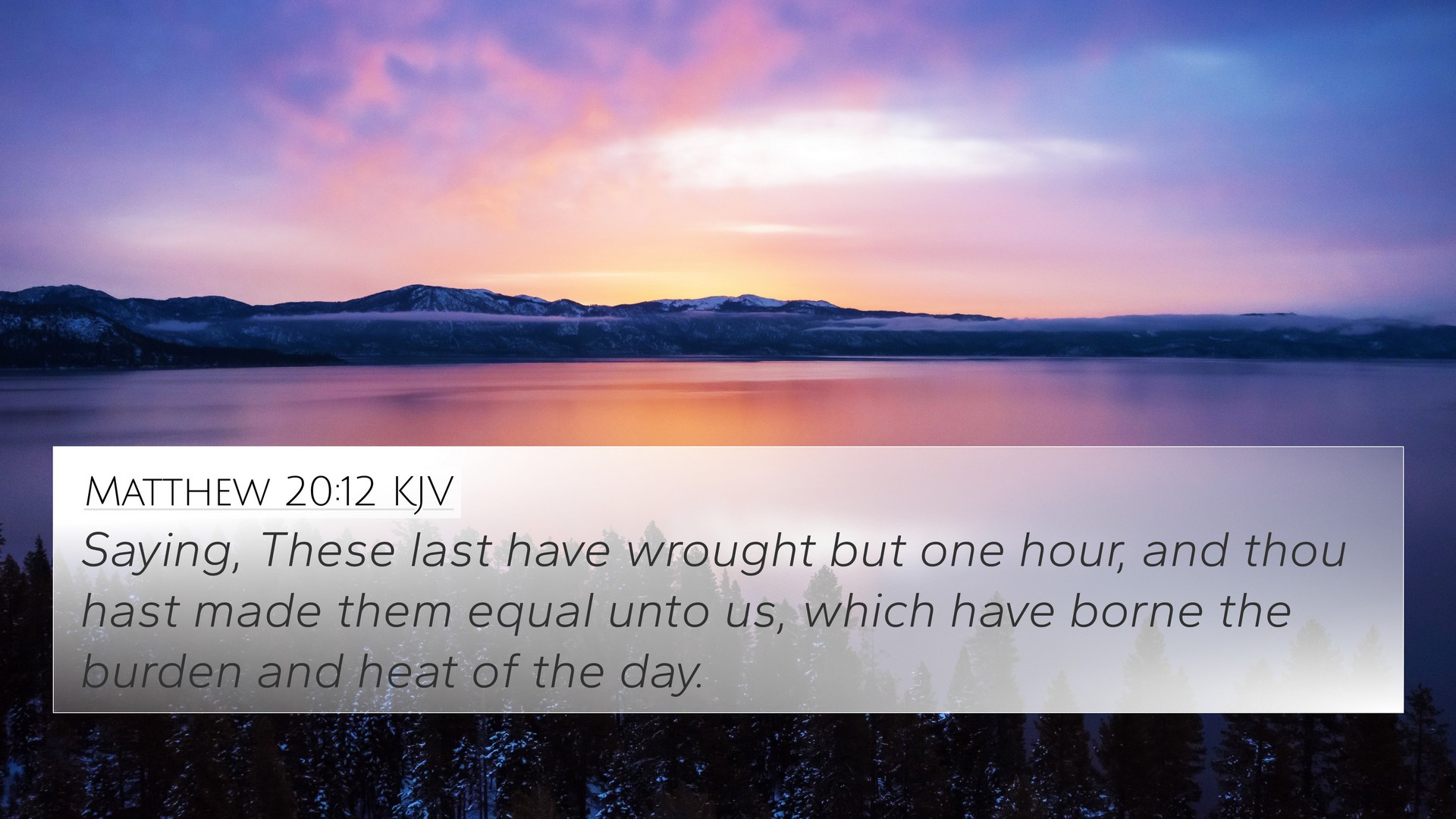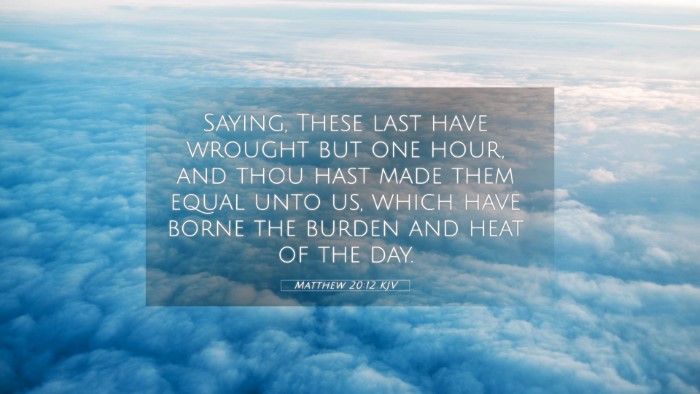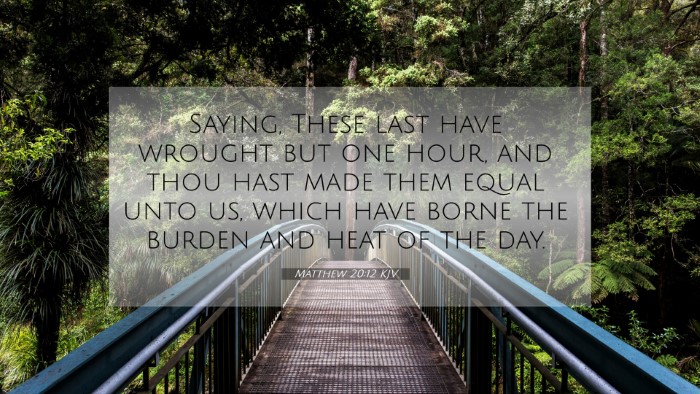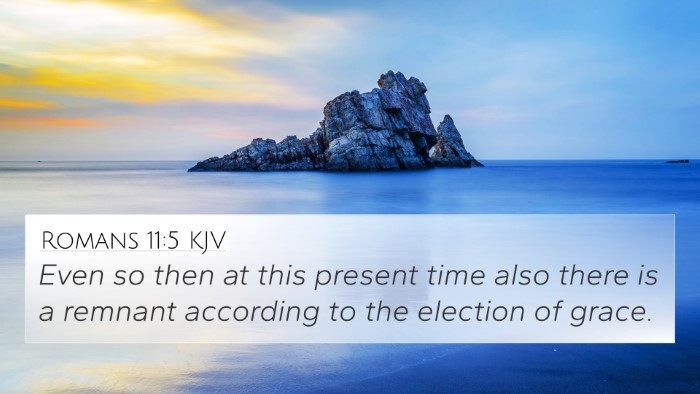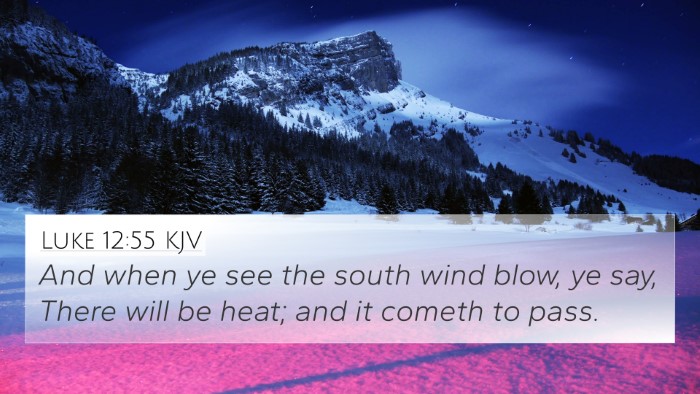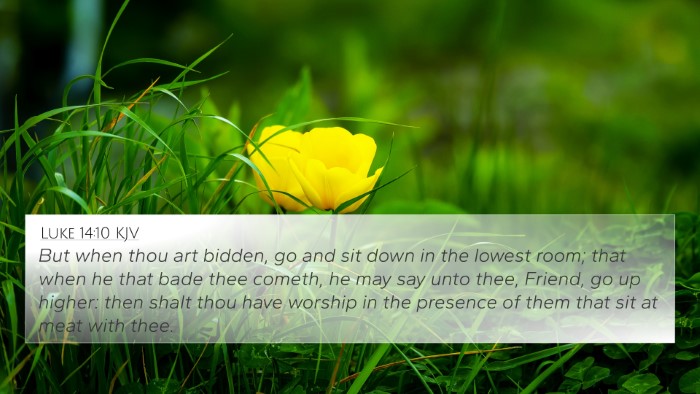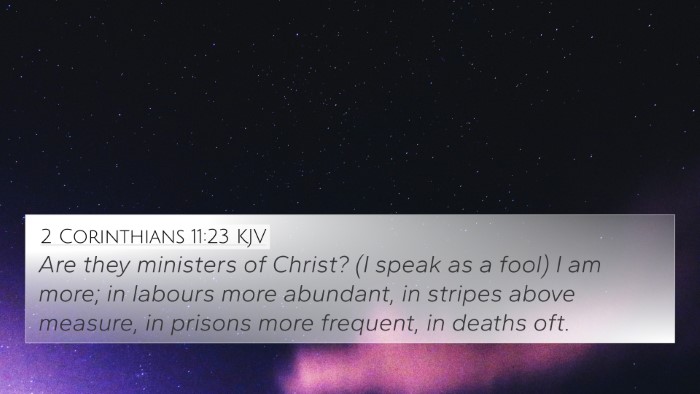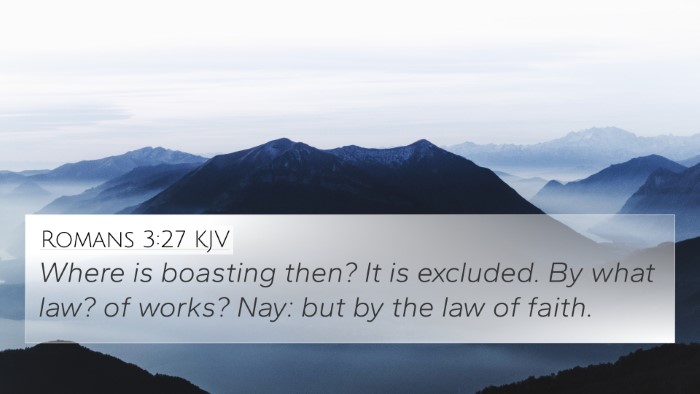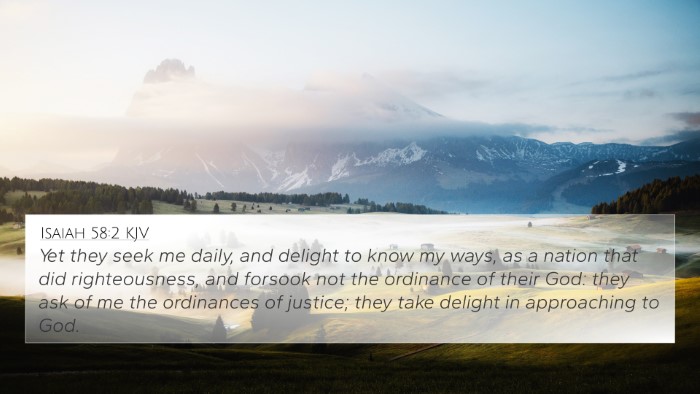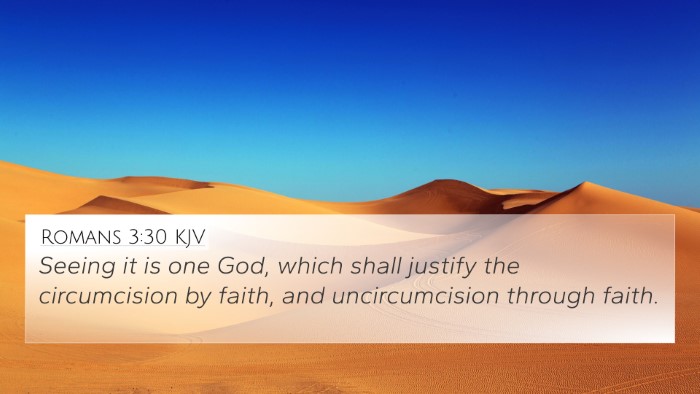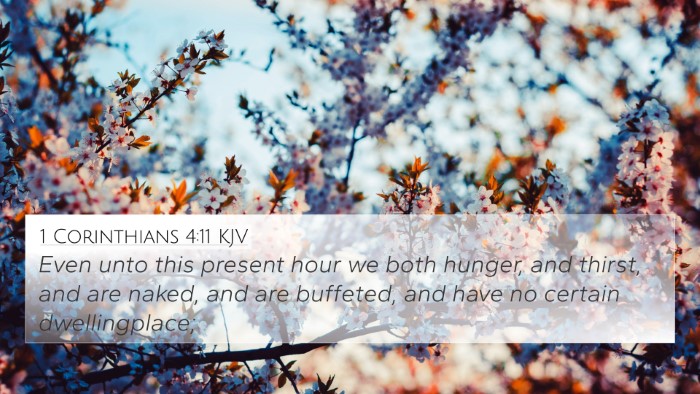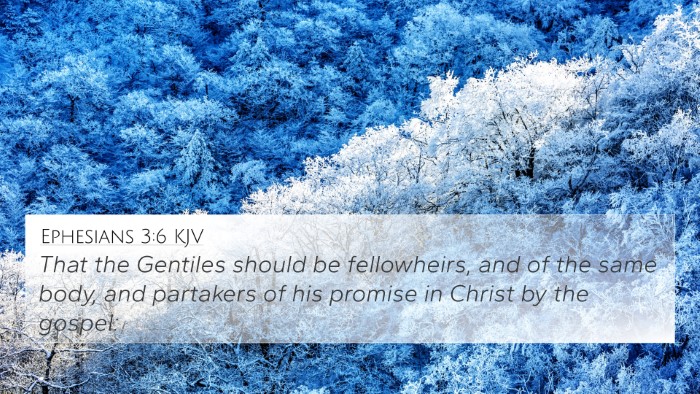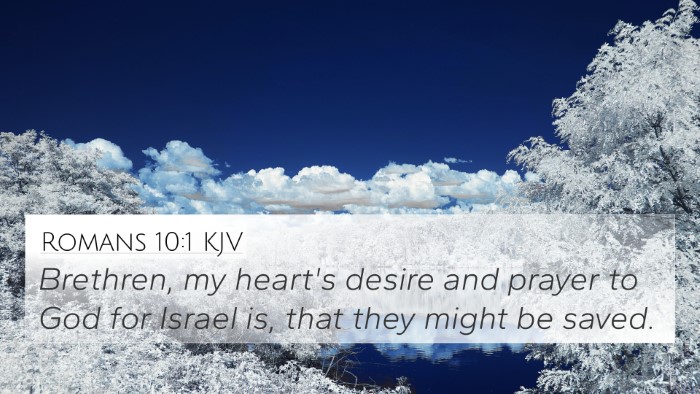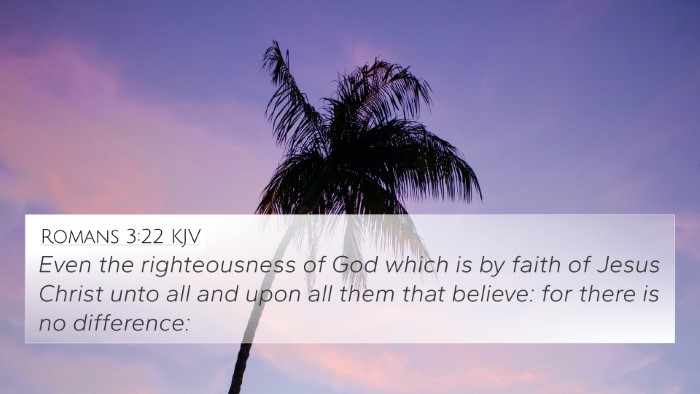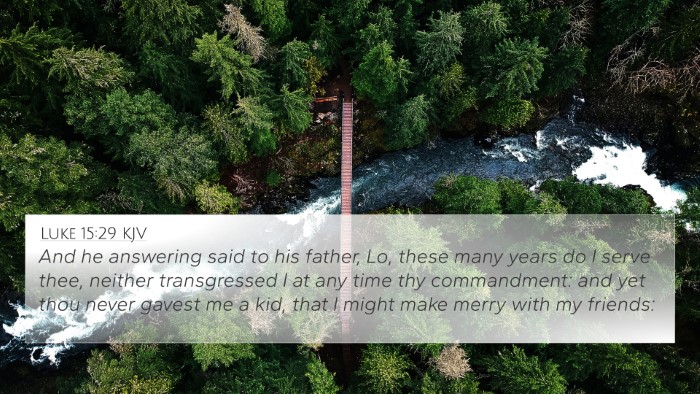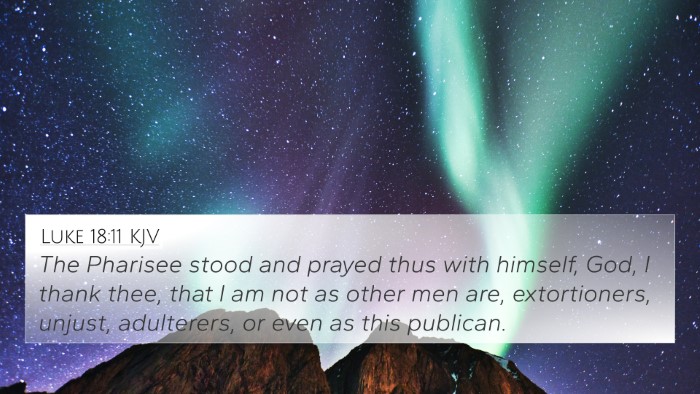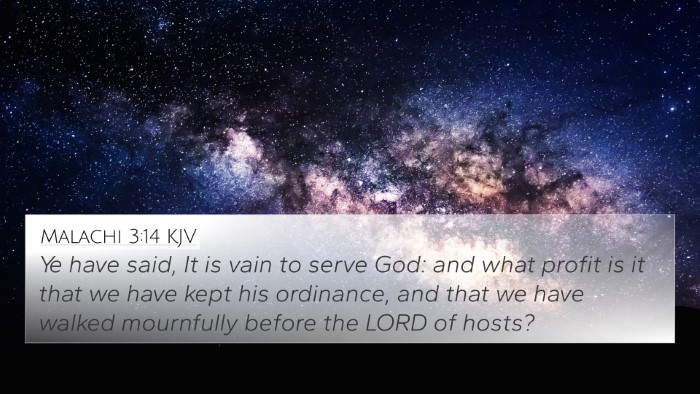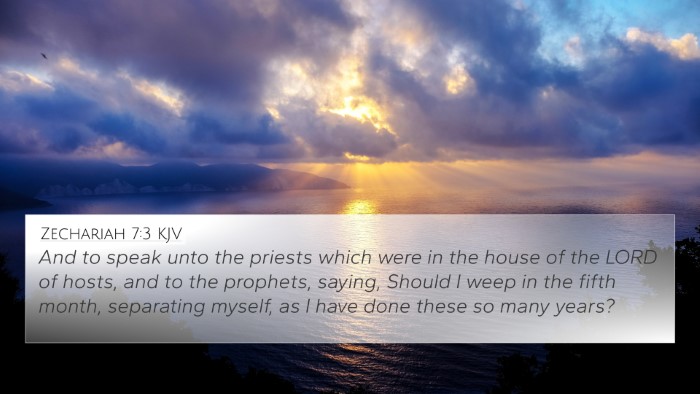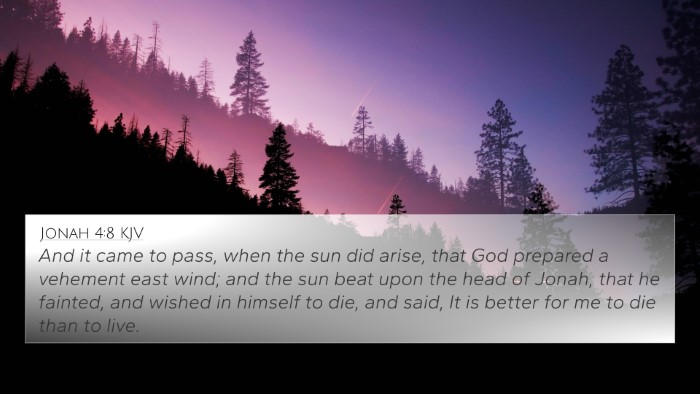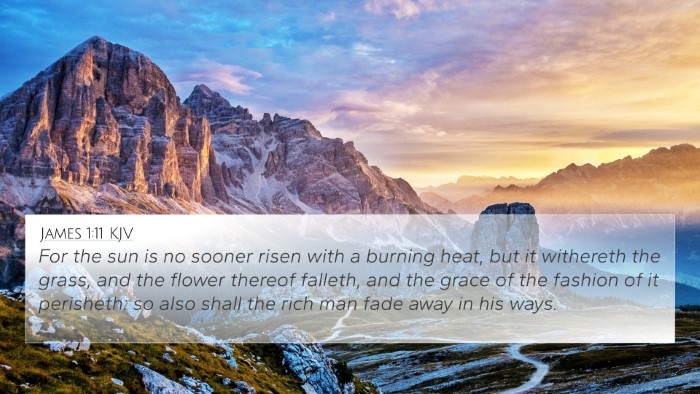Understanding Matthew 20:12
Matthew 20:12 states: "Saying, These last have wrought but one hour, and thou hast made them equal unto us, which have borne the burden and heat of the day." This verse is part of the Parable of the Workers in the Vineyard, where Jesus illustrates God's grace and the Kingdom of Heaven's values.
Summary of Meaning
This verse shows the dissatisfaction of the workers who were hired first in the vineyard when they receive the same wage as those who worked only one hour. Here, Jesus emphasizes divine generosity, the nature of grace, and a contrast between human perspectives and divine justice.
Insights from Commentaries
Matthew Henry's Commentary
Context of the Parable: Matthew Henry explains that this parable reflects God’s kingdom, where the last become first, and the first, last. The dissatisfaction of the early workers reveals human tendency to compare wages and worth, exposing the principle that God’s grace is not based on the length of service.
Human Nature: He highlights human nature’s struggle with envy and fairness. The workers' complaint illustrates a misunderstanding of grace—the concern over equality in reward rather than the joy of service.
Albert Barnes’ Notes on the Whole Bible
Divine Generosity: Barnes emphasizes that this verse illustrates God's grace, demonstrating that His generosity is not bound by human standards. Here, the reward for the late workers was a manifestation of God’s benevolence and illustrates that God's ways often contradict our expectations.
The Nature of God's Kingdom: There is a divine logic at play—attraction of the latecomers to the vineyard demonstrates divine calling, mercies extended to all regardless of their past. Barnes encourages readers to understand that the divine calling into service is a grace rather than a contract.
Adam Clarke's Commentary
Equity vs. Inequity: Clarke differentiates between human equity (which measures worth based on effort) and divine grace (which extends mercy irrespective of merit). He notes that the complaints of the early workers reveal their ignorance of the master’s purpose and the true nature of service in God’s vineyard.
Application: Clarke presents an application of the verse to encourage humility and gratitude among believers since everyone who works in God’s field is rewarded out of grace, not obligation or equal sharing based strictly on effort.
Cross References
Matthew 20:12 relates to various scriptures that align with its themes of grace, generosity, and the kingdom of God. Some notable cross-references include:
- Matthew 19:30: "But many that are first shall be last; and the last shall be first." - This verse reinforces the message that God's kingdom subverts social norms.
- Luke 15:1-32: The Parable of the Prodigal Son, which also explores themes of grace and God's willingness to accept latecomers into His family.
- Romans 9:15-16: "For he saith to Moses, I will have mercy on whom I will have mercy..." - Illustrates that mercy is not based on human effort or entitlement.
- Ephesians 2:8-9: "For by grace are ye saved through faith; and that not of yourselves: it is the gift of God." - A clear exposition of the principle of grace.
- 1 Corinthians 3:8: "Now he that planteth and he that watereth are one: and every man shall receive his own reward according to his own labour." - Discusses the equality of reward in God's work.
- Luke 10:7: "And in the same house remain, eating and drinking such things as they give: for the labourer is worthy of his hire." - Reinforces that the laborer is compensated fairly, echoing the vineyard’s themes.
- James 2:5: "Hearken, my beloved brethren, Hath not God chosen the poor of this world rich in faith, and heirs of the kingdom which he hath promised to them that love him?" - Highlights God’s preferential love for those humanity often overlooks.
Bible Cross-References for Deeper Understanding
For a comprehensive Bible study, consider connecting other verses that support this message:
- Philippians 2:3-4: Encouraging believers to consider others better than themselves parallels the spirit of cooperation in God’s service.
- Matthew 5:14-16: "Ye are the light of the world..." emphasizes the universal call to service regardless of our past.
- Isaiah 55:8-9: "For my thoughts are not your thoughts..." - Highlights the difference between human logic and God's logic.
Reflection and Application
As one reflects on Matthew 20:12, it becomes clear that this passage encourages a heart of gratitude rather than envy. The disparity in wages serves as a metaphor for the disparity in mercy given to each individual. In a world that often values merit and achievement, believers are called to recognize grace as a divine gift, meant to unite rather than divide.
Using Cross-Referencing Tools
Utilizing cross-reference tools can significantly enhance understanding of similar themes across scriptures. Here are some tips on how to effectively use these tools:
- Identify key themes and words in the Bible verse you are studying.
- Use a Bible concordance to find related verses based on those themes.
- Create thematic Bible verse connections by exploring verses that are referenced together in commentaries.
- Engage in comparative Bible verse analysis by looking at similar stories or teachings across the Gospels.
The Importance of Context
Understanding the context of each verse, including the cultural and historical setting, enriches the study. For instance, the parable reveals much about societal values of work and reward in Jesus’ time, intersecting with the idea of eternal life and God’s kingdom.
Conclusion
Matthew 20:12 encourages believers to embrace the radical grace of God, reminding them that the last will be first and the first last. As we comprehend the themes of generosity and equality in God’s service, may this inspire a grateful heart for grace received, leading us to share that grace with others.
